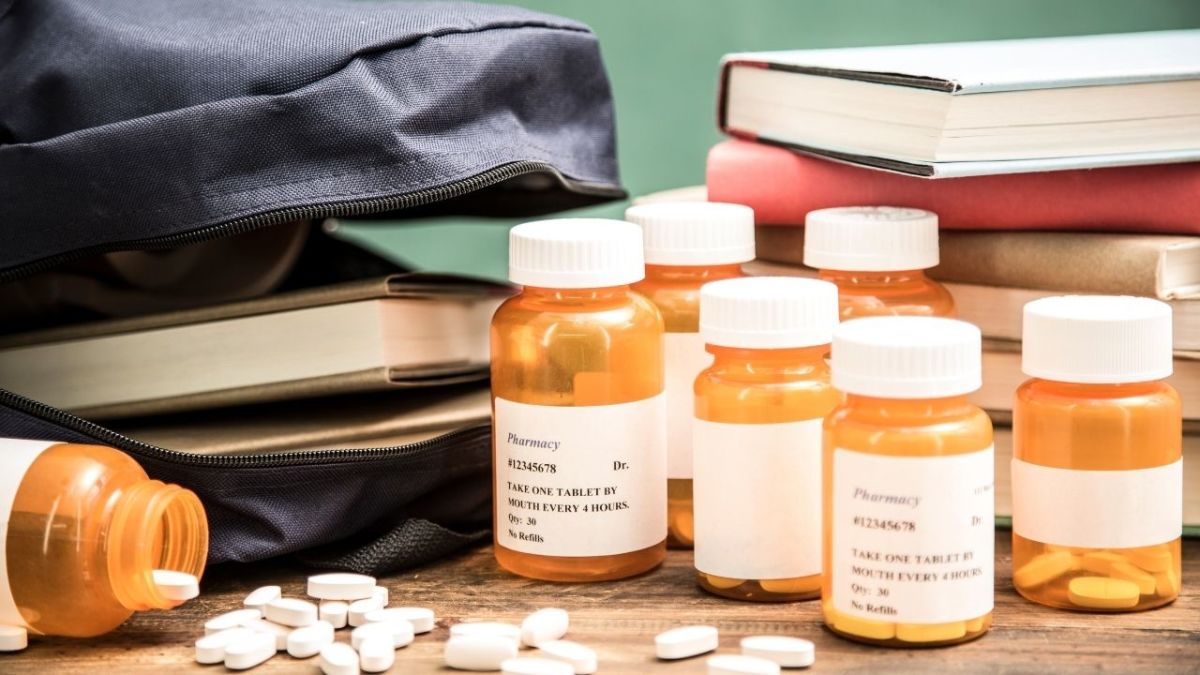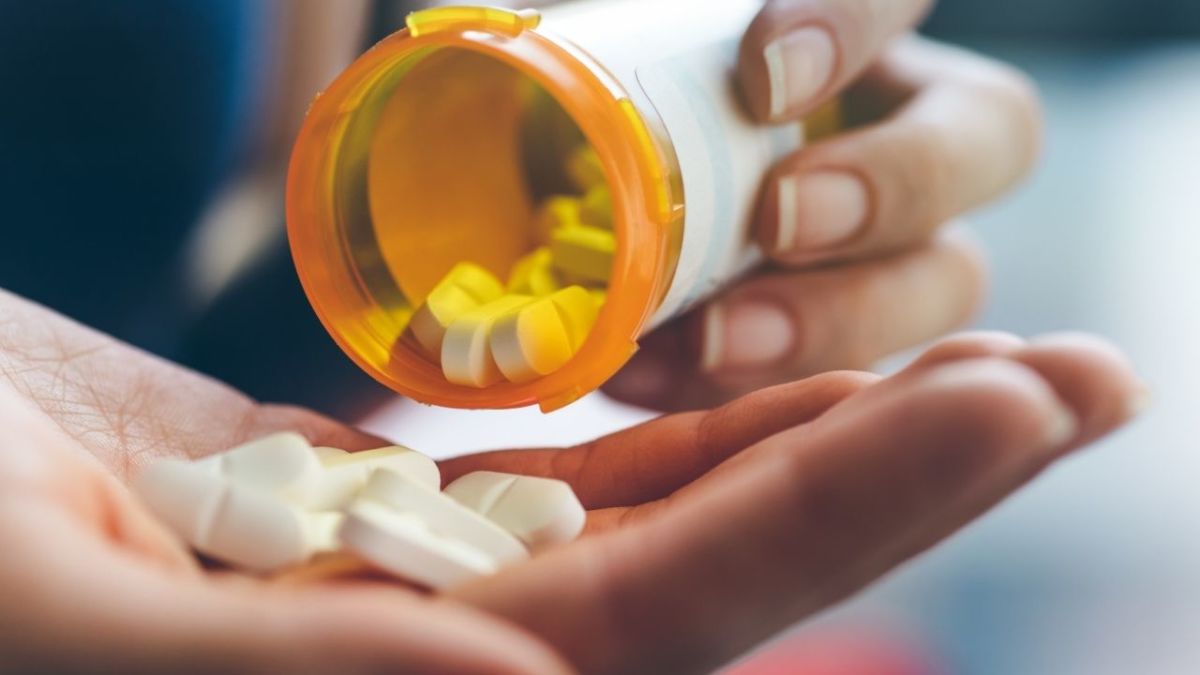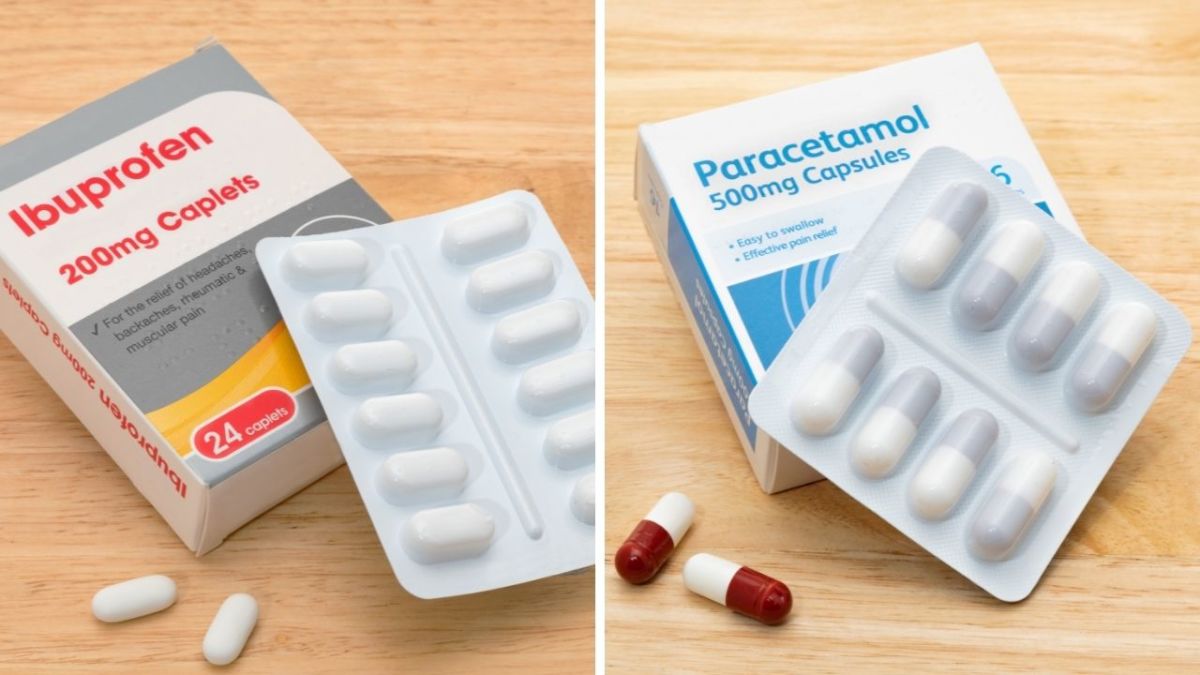
6 medications you should not leave the house without in case of an emergency
👉 The key facts from this guide
- Make sure to have your own personal medication with you. They are vital and tailored to your individual needs.
- Pack painkillers. They can help with a variety of pains and are especially useful when you're on the go and catch the flu.
- Anti-diarrhea medication is also important. In emergencies, diarrhea can become dangerous as medical care may be patchy.
- Antihistamines can help you control allergic reactions that can become dangerous in an emergency.
- Isopropyl alcohol is not a medication, but it is an significant disinfectant that should be included in every medicine cabinet.
- Finally, pack an antibiotic ointment. It can help with any cuts or scratches that may occur during an emergency.
Imagine the emergency occurs, and you can only take a handful of medications with you in your Bug-Out-Bag.
As always, you have to weigh what is important and what is not so relevant. Making this decision is not easy and raises questions for us.
Nowhere is this weighing more essential than with your medications. There are dozens of pills and ointments and syrups that you would like to have with you.
But when it comes down to it, without which medications could you not survive?
In this guide, I will get to the bottom of this question.
Every medical supply looks different
When you prepare for an emergency, there are few rules that always apply. Each preparation is as individual as the person preparing.
A medication supply for a 150 kg bodybuilder looks different from for a grandma who weighs 55 kg.
I am not a doctor and I do not have the final say on medical topics. So, always consult your doctor before using the medications listed below.
And don't wait until the crisis, like flooding or a blackout, occurs. You can do that beforehand and inform yourself about how to take the medications.
If you prioritize these two things, you can't go wrong
In my list of the most important prepping medications, I have listed dozens of medications that you should have at home. But it is not always possible to stay in your beloved place.
When planning which medications to keep and which to leave behind, there are two basic rules that should guide your decision-making:
1. Separate between "essential for survival" and "nice to have"
Many medications are primarily produced to alleviate temporary symptoms such as colds, coughs, headaches, etc. If these symptoms are not debilitating, they take a back seat.
2. Take medications that you are most likely to use
This second rule may sound obvious, but it is worth mentioning. It is essential to prioritize medications that will be most useful for the emergencies you are likely to face.
For example, one of the most common injuries in an emergency is cuts from debris. Medications that help you treat cuts should take priority over those that treat poisonings.
1. Essential medication: your personal medication
Most life-threatening disasters are not always the result of the elements.
Storms, floods, heavy rain, and in other countries even earthquakes or hurricanes.
I immediately think of my grandmother, who takes a blood clot medication and needs to keep it chilled at all times.
Here are my tips for your medications:
Communicate with your doctor - The first thing you should do to get a reserve supply of medication is to talk to your doctor. Tell him or her that you are preparing for an emergency and need as many extra medications as is reasonable.
Store as much as possible - I've seen that my grandmother's doctor recommends having a minimum supply of prescription medication for three days at all times. I recommend tripling that period (at least) and extending it to a month if possible.
Be prepared for additional costs - Some insurance companies only cover medications for 30 days. If you require more, you may have to pay for it yourself.
Ask for pills - Pills and tablets generally last longer than liquid medications and can remain stable beyond their expiration date. There is still much debate about the shelf life of medications in general. Some experts urge pharmaceutical companies to reassess and extend the shelf life of many medications. Be sure to ask your doctor how long your medications can be safely stored.

Secret tip for summer with refrigerated medications:
Store the medications in your toilet tank - If things get worse and the power goes out, you can keep refrigerated medications in your fridge for up to a day. Once your fridge has cooled to room temperature, put your medications in a waterproof bag and store them in the tank of your toilet. The water in it stays much cooler than room temperature, even during a power outage.
2. Essential medication: painkillers
They may not seem "life-saving" at first glance, but they are, and that is not always immediately obvious. Anyone who has stayed up all night with a feverish baby can attest to the power of painkillers.
Or imagine you're on the go and catch the flu. You can't afford to take one or two days off, so you have to get through these days of weakness with painkillers.
Because the most important thing is that your body functions and gets you away from the disaster.
They also have a wide range of temporary benefits that make them one of the best go-to items in any emergency medicine cabinet.
There are two main categories of pain relievers: paracetamol and ibuprofen.

Each of the two pain relievers has a range of effects that can alleviate symptoms and discomfort:
Treats a variety of pains - While other medications are specialized, pain relievers are true all-rounders when it comes to alleviating symptoms. They can help with headaches, muscle aches, colds and sore throats, toothaches, and back pain. This makes them super useful when you have little space in emergency situations.
Reduces fever - As I mentioned earlier, both paracetamol and ibuprofen have fever-reducing effects. This can be a stroke of luck, especially in situations where you have no access to doctors or hospitals.
Reduces swelling - Ibuprofen is also used to reduce swelling in the body, which in turn reduces pain, gives you more freedom of movement, better sleep, and supports overall healing.
3. Vital medication: Anti-Diarrhea Medication
Under normal circumstances (and in developed countries), diarrhea is a manageable problem.
In emergency situations, when contamination occurs and medical care is patchy, it can become much more dangerous.
Diarrhea can also be a gruesome side effect of many diseases, so it's important to know how to deal with it.
A severe attack can exhaust your body and your body fluids will disappear frighteningly quickly - in extreme cases, faster than you can replace them.
While most over-the-counter medications do not cure the underlying causes of diarrhea, they can slow it down.
The most effective common medication is Loperamide. It slows down the movements through your intestines and gives you time to absorb water. Imodium is the most well-known and available over the counter. The shelf life of loperamide depends on the form, formula, packaging, and storage. For example, chewable tablets are indicated for about two years.
Drink. Drink. Drink. In addition to an effective remedy for diarrhea, make sure to get enough water and electrolytes. Medications are not a substitute for frequent fluid intake.
4. Vital medication: Antihistamines
An antihistamine is a medication that reduces the effect of natural chemical histamine in the body. Histamine is a natural substance produced by body cells and released during an allergic reaction. Antihistamines block the effect of histamine on these cells, thus reducing the symptoms of an allergic reaction.
Why is an allergic reaction dangerous?
During an allergic reaction, your body can cause swelling of your throat tissue, which can lead to breathing difficulties. It is important to know the signs of an allergic reaction, such as a drop in blood pressure and difficulty swallowing.
Allergic reactions can occur with food allergies, as well as from medications, contact with an allergen, or even physical activity. Common symptoms of allergic reactions include itching, redness, and swelling of the skin, along with a rash or hives.
But beware: histamine causes dilation of blood vessels, which can lead to symptoms such as sneezing, itching, watery eyes, and a runny nose.
5. Essential Medication: Isopropyl Alcohol
It's not exactly a "medication," but isopropyl alcohol should be in every medicine cabinet. It should be one of your top options for emergency medical care. Here's why.
Cleanses cuts and wounds (source) - I've already mentioned it: bad cuts and scrapes are among the most common medical problems you'll face in emergencies. It only takes one tiny entry point for the wrong type of bacteria to cause serious problems.
To prevent this, apply the alcohol to the wound as soon as possible after cutting it. Since isopropyl alcohol is liquid, it's great for penetrating every point of a jagged laceration.
Hydrogen peroxide also works - Hydrogen peroxide is also a good disinfectant, although it takes a while to work before it fully disinfects. It will also debride a wound - remove dead cells - which can be helpful in the short term. However, in the long run, some doctors are concerned that it may actually slow down healing, as its aggressive composition also kills healthy, living cells.
Cleanses surfaces - 70 to 80 percent isopropyl is so damn effective at killing the types of microbes that cause the stomach problems mentioned above. It also kills bacteria on your hands.
6. Essential Medication: Antibiotic Ointment
Antibiotic ointments round out the list. On their own, they are effective and can prevent infections. Some experts even recommend combining the ointments with isopropyl alcohol.
Rinse your wound with isopropyl alcohol to quickly and thoroughly disinfect it, then apply the ointment and wrap the wound in a clean cloth or bandage.
Long-term disinfectant - Antibiotic ointments are a much better long-term disinfectant than alcohol, which quickly wears off and dissolves, forcing you to constantly remove and reapply your bandages. Changing them lets new bacteria in and wastes your valuable bandage supply at the most inconvenient time.
Antibiotic ointment, on the other hand, remains on the skin and disinfects for hours. During this time, it helps in many ways to heal: the ointment moisturizes the wound, acts as a physical barrier against bacteria, and even relieves pain.
Conclusion: These 6 emergency medications should be packed immediately in case of an emergency
The first and most important thing to pack is your personal medication. These are tailored to you and are certainly essential.
After that, pack a medication for diarrhea, such as Imodium. This medication will help you control your diarrhea, which is one of the most common symptoms of gastroenteritis (stomach flu).
Next, pack a pain reliever like paracetamol or ibuprofen that helps with headaches or pain.
Next comes alcohol, which can be used to disinfect wounds and clean surfaces throughout the house when water is not available.
Finally, you should also pack an antibiotic ointment for any cuts or scrapes that may occur during an emergency situation.


Author of the guide
Martin Gebhardt
Hey, I'm Martin. On my blog, you will learn the basics and numerous details about living in the wild. I think survival, bushcraft and the good life in nature are the keys to happiness. Find me here on Instagram or on YouTube. You can find more about my mission on the About Me page.
Was this guide helpful?
21 people found this guide helpful.
4.82 out of 5 points (22 Ratings)
Comments (0)
This post may contain affiliate links. So if you click on the links and make a purchase, I will receive a small commission at no additional cost to you. Click here, to learn more about it.


